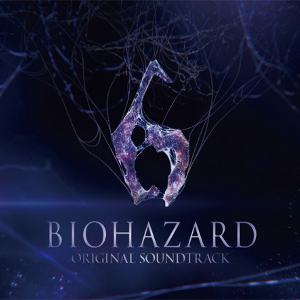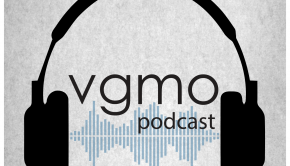Resident Evil 6 Original Soundtrack (JP Edition)
 |
Album Title: Resident Evil 6 Original Soundtrack (JP Edition) (Biohazard 6 Original Soundtrack) |
| Record Label: Suleputer |
|
| Catalog No.: CPCA-10276/9 |
|
| Release Date: November 14, 2012 |
|
| Purchase: Buy at Bandcamp |
Overview
Resident Evil 6 was widely panned for departing from the horror roots of the franchise in favour of mindless action. The soundtrack was no exception to this rule, more closely resembling an action B-movie than any of the past entries in the franchise. The soundtrack was built through the collaboration of three teams under the direction of Wataru Hachisako: in-house composers Akihiko Narita, Akiyuki Morimoto, Kota Suzuki, and Azusa Kato of Capcom; prolific film orchestrators and television composers Thomas Parisch and Laurent Ziliani of PearUp Media; and European expat newcomers Daniel Lindholm and Sebastian Schwartz of Attic Inc. The soundtrack was the series’ largest to date, featuring over 150 tracks and 5.5 hours of music, but it is also by far the least enjoyable. This review refers to the game’s four-disc soundtrack, which was released in Japan by Capcom’s in-house record label Suleputer.
Body
Right from the “Main Theme”, it is clear that the soundtrack has profound issues. Penned by Parisch and Ziliani, the track is a full-orchestral overture intended to create drama and urgency. The main problem is that the composers attempt to do this by using every cliché in the film scoring toolkit. Whether the tremolo strings and minor 2nd suspensions taken straight from B-horror movies, or the booming percussion and shameless brass taken straight from action blockbusters, nothing about the theme feels original. The main melody is phrased in a way that generates considerable drama, but it is stripped of its integrity by the uninspired arrangement and orchestration. Likewise, while the composition also benefits from a robust, piercing performance from the Sydney Scoring Orchestra, the production is cheapened by the generic percussion taken straight from last-gen sample libraries at the 1:16 mark. The series has a tradition of representative main themes, whether the breathtaking leitmotif of Resident Evil 2, minimalistic rolls of Resident Evil 3, or exotic vocals of Resident Evil 5. Resident Evil 6‘s main theme also perfectly mirrors the game itself, but in all the worst ways: a shameless spectacle devoid of substance and originality.
As the soundtrack progresses, it is clear that most of the music leans towards Hollywood than Resident Evil. So many of the major cues on the soundtrack, whether “Floating Nightmare”, “Bioterrorism in Lanshiang”, or “Avalanche”, sound like they came straight from a 90s action soundtrack. None of them have the melodic flair to make up for their triteness. The four-part “Aircraft Carrier” series should have been spectacular, used as Chris and Piers scramble to disable a zombie missile, but again such themes lack the musical identity and dynamic range to grab the attention of listeners. This is a soundtrack where the vast majority of themes comprise just a few elements (i.e. strings, brass, and percussion) arranged into tense underscore and action themes. While the aforementioned setpieces underwhelm, there are also piles more tracks that fail to make an impression in the game or on the soundtrack at all. Shorter-scale tracks that channel the same influences and feature the same forces (“The Unexpected”, “Bus Escape”, “Brzak (Final)”, “Mission: Escape”, and “Sudden Crisis” to a name a mere few) tend to blend into one and lack any features to excite a listener. For a soundtrack featuring some eight composers, the final work is surprisingly and disappointingly homogeneous.
The soundtrack occasionally compensates for its weaknesses with some strong action tracks. Laurent and Parisch’s “Kith and Kin” is clearly inspired by the action anthems of Resident Evil 2 and Code Veronica, using a formula of driving chord progressions, catchy brass melodies, and choral dabs. It is as derivative as the rest of the soundtrack, but at least takes inspiration from what fans have come to love from the series. Morimoto’s “Haos / Apostle of Chaos” serves as a fine climax for Chris’ chapter, hybridising horror and action scoring in a way that is enthralling rather than predictable for a change. Lindholm also brings plenty of muscle and grit to “Neo-Umbrella’s Assault”, while Schwartz spruces up “Speeding Bike I & II” with a trap set and Suzuki provides orchestral and electronic variations of “Infinite Metamorphoses”. Also among the highlights is “Deborah’s Transformation I & II” with their dense string work, “Gas Station” with its awesome percussion break, and “Ancient Blood” with its main theme reprises. But for all these good to great tracks, there are many more action tracks that serve as passable background but leave little impression on a stand-alone basis. “Rescue the Hostages”, “Iluzija I & II”, “Chase I & II”, and “Ubistvo I & II” all sound surprisingly aseptic with their by-the-numbers orchestration and bland mix. “Ustanak/Collapsing Building” is also disappointing, as it incorporates a lot of elements (orchestra, chorus, guitar), but fails to do anything with them.
The soundtrack is the bulkiest in the franchise to date, featuring 151 tracks over four discs. Capcom have ordered the release so that each disc references a different playable character: Leon (Disc 1), Chris (Disc 2), Jake (Disc 3), and Ada (Disc 4). While each disc has a slightly different personality, the vast majority of the tracks are still by-the-numbers Hollywood ambient and action tracks. Leon’s music is a little more horror-oriented and retrospective, whereas Chris’ goes all-out with the militaristic influence. Jake and Ada bring a little musical variety to the mix, with their respective contemporary guitar work and jazzy infiltration grooves, but these influences are too light and sparse to reignite an already-stale soundtrack. The homogeneity is further reflected by the character variations of the main theme that open each disc; the core theme “Invasion of Darkness” is quite enjoyable with its swelling string undertones and contemplative main melody, but the variations are too similar in structure and personality to be impressionable. The soundtrack shifts in tone at the end of the fourth disc for the pulsing electronic tracks to represent the Mercenaries mode, “Heat on Beat 2012” and “Evil Eye”, but these tracks are too few to rival the incredible bonus tracks on previous series’ soundtracks such as Resident Evil 4‘s.
Reflecting the soundtrack’s bulk, there are inevitably a tonne of event tracks featured throughout the soundtracks. Unfortunately, most of these once again emphasise how hackneyed this soundtrack is: expect tremolo and portamento strings galore in “First Zombie Attack”, every military platitude imaginable in “Emergency Situation II”, and gimmicky prepared instrumentation as the centrepiece of “The Town”. Some tracks are nothing but suspended strings, such as “Ominous Escort / City Hall” or “Invisible Sign”, and were probably thrown together in hours. The soundtrack also lacks the emotional tracks needed to give the soundtrack some personality and heart; while there are a few tender tracks along the way, such as “Determination”, “Blood Ties”, and “A Promise Kept”, they come across as manipulative rather than heartrending in the context of the rest of the experience. While an abundance of event tracks is no new problem for the Resident Evil franchise, the highlight-to-content ratio of Resident Evil 6 is the very lowest of the series. There are some better tracks: “Life or Death” and “Through the Fatal Gas” are relatively nuanced cinematic compositions, undergoing several shifts in tone while incorporating hints of the main theme. Morimoto’s “Death of the President” channels influences from earlier Resident Evil titles with its spooky blend of orchestra, piano, and electronic elements. There are rare references to past entries in the franchise with “Underground Lab” and “The Ties That Bind”, the latter even directly referencing a past entry into the series to bittersweet effect.
The album situation for Resident Evil 6 is also notable. There are two soundtracks available: the four-disc Japanese edition released by Suleputer and the two-disc domestic edition released by Sumthing Else Music Works. The former is one of the most dull stand-alone listens I have ever experienced with its uniform faux-orchestral compositions and endless filler tracks. But completists should note that, despite its 4410 JPY pricetag and lengthy playtime, it is far from complete. There are a dozen themes (e.g. “What Lurks Beneath the Tombstones?”, “Rasklapanje”, “Boiling Rage”) that were completely omitted from the soundtrack and are only available through a Steam-exclusive bonus digital soundtrack. However, Suleputer ironically found the space to incorporate “Main Theme” and “Joint Struggle” into the soundtrack, which are identical to each other with the exception that the latter loops for a minute longer. In addition to being more affordable, the two-disc soundtrack is a more enjoyable stand-alone listen given it cuts more of the obvious filler tracks. However, there is still plenty of derivative blockbuster tracks and a few of the better tracks are missing, e.g. “Underground Lab”, “Evil Eye”, “Speedy Bike II”. While my preference would be to avoid Resident Evil 6‘s soundtrack altogether, at least the condensed edition is listenable.
Summary
Just like the game itself, Resident Evil 6‘s soundtrack is repetitive, unpolished, and derivative. But perhaps worst of all, it is also incredibly boring, lacking the rich melodies, varied styles, and emotional depth that drew listeners into past soundtrack in the series. The fully-fledged four-disc release is a particular slog, with no end of militaristic orchestrations and brief event cues. If the series is to get back on track, musically and otherwise, Capcom need to stop aspiring to Gears of War and look once more at what the series’ best entries did right. Resident Evil’s directors should stop outsourcing to budget Western composers and instead try to cultivate creativity within its own team and associates. I highly recommend skipping this soundtrack completely, but anyone who enjoyed the music in the game would be best off sticking to the domestic edition than the bloated, pricey, and still-incomplete import soundtrack.
Do you agree with the review and score? Let us know in the comments below!
2
Posted on July 5, 2015 by Chris Greening. Last modified on January 17, 2016.














